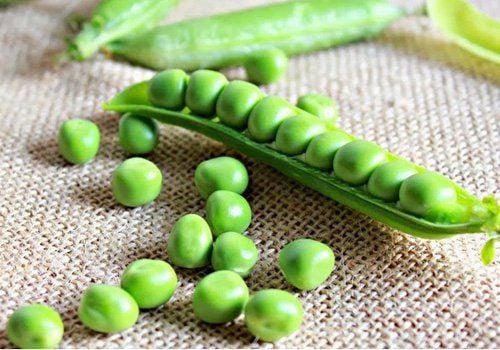This is an automatically translated article.
Posted by Master, Doctor Mai Vien Phuong - Department of Examination & Internal Medicine - Vinmec Central Park International General Hospital
Laxatives can have a powerful impact on your digestive health. Because of their effect in the body, laxatives can help relieve constipation and promote regular bowel movements. Surprisingly, there are many natural laxatives that can be just as effective as over-the-counter products in preventing constipation. This article will look at 20 natural laxatives and how they work.
1. Chia seeds
Fiber is a natural treatment and one of the first lines of defense against constipation.
Chia seeds are particularly high in fiber, containing 11 grams in just 1 ounce (28 grams).
They mainly contain insoluble fiber, but about 3% of the total fiber content consists of soluble fiber.
Soluble fiber absorbs water to form a gel, which can aid in the formation of softer stools to relieve constipation.
2. Berries
Most berries are relatively high in fiber, making them a great choice as a mild natural laxative.
Berries contain two types of fiber: soluble and insoluble.
Soluble fiber, such as in chia seeds, absorbs water in the intestines to form a gel-like substance that helps soften stools.
Insoluble fiber does not absorb water, but moves through the body intact, increasing stool volume for easier passage.
3. Beans
Legumes are a family of edible plants that includes beans, chickpeas, lentils, peas, and peanuts. Legumes are high in fiber, which can encourage regular eating.
For example, one cup (198 grams) of boiled lentils contains 15.6 grams of fiber while 1 cup (164 grams) of chickpeas provides 12.5 grams of fiber.
Eating legumes can help increase the body's production of butyric acid, a short-chain fatty acid that can act as a natural laxative.
Studies show that butyric acid can aid in the treatment of constipation by enhancing the movement of the digestive tract.
It also acts as an anti-inflammatory to reduce intestinal inflammation that can be associated with certain digestive disorders such as Crohn's disease or inflammatory bowel disease.

4. Flaxseeds
With their high content of omega-3 fatty acids and high amounts of protein, flaxseeds are rich in nutrients that make them a healthy addition to any diet.
Not only that, but flaxseed has natural laxative properties and is an effective treatment for both constipation and diarrhea.
Flaxseed contains a good mix of both soluble and insoluble fiber, which helps to reduce intestinal transit time and add bulk to the stool.
One tablespoon (10 grams) of flaxseed provides 2 grams of insoluble fiber, plus 1 gram of soluble fiber.
5. Kefir
Kefir is a fermented milk product. It contains probiotics, a type of beneficial gut bacteria with many health benefits, including improved immune function and improved digestive system health.
Consuming probiotics through food or supplements can steadily increase stool consistency while improving stool consistency and speeding bowel transit.
After consuming 17 ounces (500ml) per day for four weeks, participants increased stool frequency, improved consistency, and reduced laxative use.
6. Castor Oil
Produced from castor beans, castor oil has a long history of being used as a natural laxative. After consuming castor oil, it releases ricinoleic acid, an unsaturated fatty acid responsible for its laxative effects.
Ricinoleic acid works by activating a specific receptor in the digestive tract that increases intestinal muscle movement to induce bowel movements.
One study found that castor oil can relieve symptoms of constipation by softening stools, reducing straining during bowel movements, and reducing the sensation of incomplete bowel movements.

7. Green
Green vegetables like spinach, kale and cabbage work in a number of different ways to improve regularity and prevent constipation.
First, they are very nutrient-dense, which means they provide a good amount of vitamins, minerals, and fiber with relatively few calories.
For example, each cup (67 grams) of kale provides 1.3 grams of regularity-boosting fiber and has only about 33 calories.
Green vegetables are also rich in magnesium. This is the main ingredient in many laxatives, as it helps draw water into the intestines to help with stool elimination.
Several studies have shown that low magnesium intake can be associated with constipation, so ensuring adequate magnesium intake is important to maintain regularity.
8. Senna
Extracted from the Senna alexandrina plant, senna is an herb commonly used as a natural stimulant laxative.
Senna is found in many popular over-the-counter products, such as Ex-Lax, Senna-Lax, and Senokot. Senna's constipation-reducing effects are attributed to the plant's sennoside content.
9. Apples
Apples are high in fiber, providing 3 grams of fiber per cup (125 grams).
Plus, they're full of pectin, a soluble fiber that can act as a laxative.
10. Olive oil
Several studies have found that consuming olive oil can be an effective way to relieve constipation.
It acts as a lubricating laxative, providing a coating in the rectum allowing easier passage, while stimulating the small intestine to speed up transit.
In one study, researchers combined olive oil with a traditional colon cleansing formula and found that the formula was more effective when combined with olive oil than with laxatives. other colon, such as magnesium hydroxide.

11. Rhubarb
Rhubarb contains a compound called sennoside A, which provides some potent laxative properties. Sennoside A lowers levels of AQP3, a protein that regulates water content in the stool. This results in a laxative effect by increasing water absorption to soften stools and ease bowel movements.
Rhubarb also contains a good amount of fiber that promotes regularity, with 2.2 grams of fiber per cup (122 grams).
12. Aloe vera
Aloe latex, a gel obtained from the inner lining of the aloe leaf, is commonly used to treat constipation.
It has a laxative effect from the glycoside anthraquinone, compounds that draw water into the intestines and stimulate the movement of the digestive tract. One study confirmed the effectiveness of aloe vera by creating a preparation using celandine, plantain, and aloe. They found that the mixture was able to effectively soften stools and increase the frequency of bowel movements.
13. Oat Bran
Produced from the outer layers of the oat grain, oat bran is high in soluble and insoluble fiber, making it a good choice as a natural laxative.14. Prunes
Prunes are probably one of the most well-known natural laxatives today. They provide a lot of fiber, with 2 grams in each 1-ounce (28-gram) serving. They also contain a sugar alcohol called sorbitol.
Sorbitol is poorly absorbed and acts as an osmotic, bringing water into the intestines, helping to stimulate bowel movements.
15. Kiwi fruit
Kiwi fruit has been shown to have laxative properties, which is a convenient way to relieve constipation. This is mainly due to the high fiber content. One cup (177 grams) of kiwi fruit contains 5.3 grams of fiber, which is up to 21% of the recommended daily intake.
Kiwi fruit contains a mixture of both insoluble and soluble fiber. It also contains pectin, which has been shown to have a natural laxative effect. It works by increasing the movement of the digestive tract to stimulate bowel movements.

16. Magnesium Citrate
Magnesium citrate is a powerful natural laxative. Magnesium citrate has been shown to be more bioavailable and better absorbed in the body than other forms of magnesium, such as magnesium oxide. Magnesium citrate increases the amount of water in the intestinal tract, causing bowel movements.
When combined with other laxatives, magnesium citrate has been shown to be as effective as traditional colon cleansing regimens used before medical procedures.
17. Coffee
For some people, coffee can increase the urge to go to the bathroom. It stimulates the muscles in your colon, which can produce a natural laxative effect. This is largely due to coffee's effect on gastrin, a hormone released after eating. Gastrin is responsible for the secretion of gastric acid, which helps break down food in the stomach.
Gastrin has also been shown to increase the movement of the intestinal muscles, which can help speed up bowel movements and stimulate bowel movements.
In fact, other studies have shown that caffeinated coffee can stimulate your digestive tract as much as a meal and up to 60% more than water.
18. Psyllium
Extracted from the bark and seeds of the plant Plantago ovata, psyllium is a type of fiber with laxative properties. Although it contains both soluble and insoluble fiber, its high soluble fiber content is what makes it particularly effective at relieving constipation.
Psyllium has even been shown to be more effective than some prescription laxatives.
19. Water
Water is needed to maintain water intake as well as maintain regularity and prevent constipation. Research shows that drinking enough water can help relieve constipation by improving stool consistency, making it easier to pass. It can also amplify the effects of other natural laxatives, like fiber.

20. Sugar substitutes
Excessive consumption of certain types of sugar substitutes can have a laxative effect. This is because they pass through the intestines barely absorbed, drawing water into the intestines and speeding up intestinal transit. This process is especially true for sugar alcohols, which are poorly absorbed in the gastrointestinal tract.
Lactitol, a sugar alcohol derived from lactose, has actually been studied for its potential use in the treatment of chronic constipation.
Xylitol is another common sugar alcohol that has a laxative effect.
Large amounts of the sugar alcohol erythritol can also have a laxative effect in a similar way, promoting bowel movements by introducing large amounts of water into the intestines.
Conclusion There are many natural laxatives that can help you have regular bowel movements by increasing the frequency of bowel movements and improving stool consistency.
In addition to using these natural laxatives, make sure you stay hydrated, follow a healthy diet and make time for regular physical activity.
These steps will help prevent constipation and keep your digestive system healthy.
Hope the above information has given you more options with 20 natural laxatives. Wish you always have a scientific diet and improve your work productivity and improve your life.
Please dial HOTLINE for more information or register for an appointment HERE. Download MyVinmec app to make appointments faster and to manage your bookings easily.














